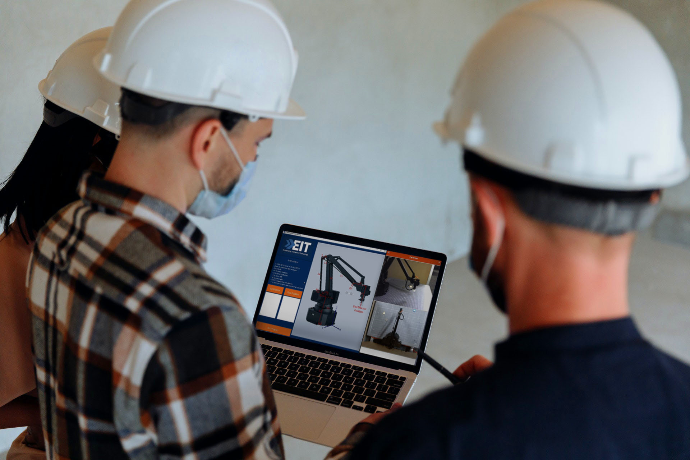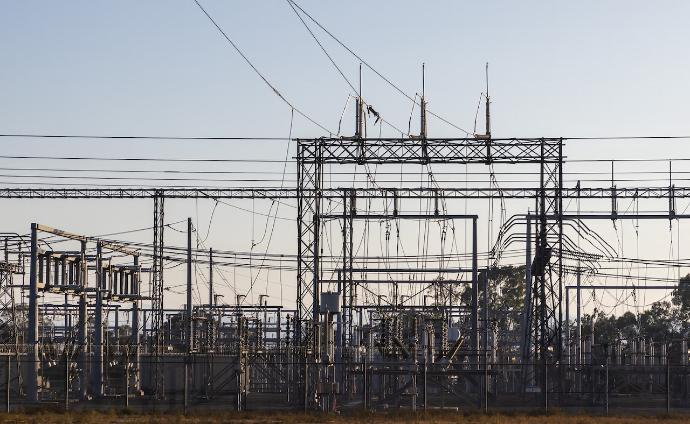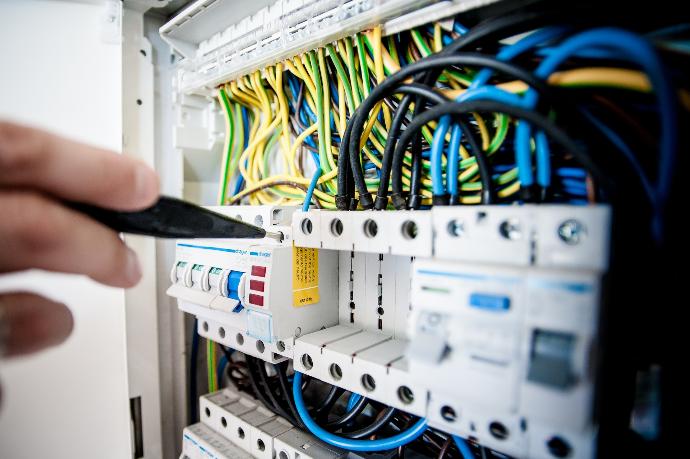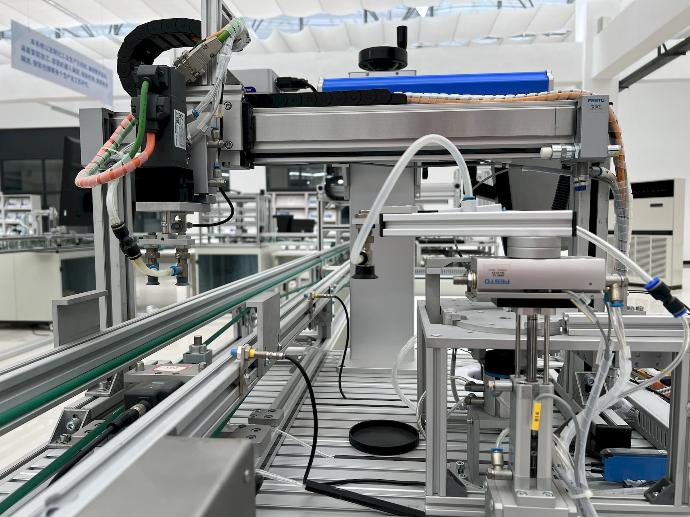Online Industry-based TVET Up-skilling and Re-skilling Programs

Online Delivery Core Components
-
Live online instructors
-
Industry recognised courses
-
Access to EIT Remote Labs for practicals
-
Online content and quizzes
-
Dedicated Learning Support Officer
Benefits for Employers
-
Meet your training Business Objectives
-
Invest in your Employees Growth
-
Help Retain Employees
-
Improve Performance & Operational Efficiencies
-
Improve quality of Client Interations
-
Upskill staff to Increase Charge-out Rate
Course Catalogue by Category
Professional Certificate of Competency in Hydrogen Energy - Production, Delivery, Storage, and Use
The course is composed of 12 modules, covering the fundamental principles and concepts used in process design and plant design.
This course provides the fundamentals of hydrogen energy and hydrogen energy storage as fuel cell and will also provide an understanding of the innovative technologies being implemented in hydrogen industry in the recent times. Hydrogen production methods are presented, with a specific attention to electrolysis as a means for producing hydrogen from renewable energies. Hydrogen storage methods are described and the process of electrical energy generation from hydrogen by using fuel cell technology is explained.
During this course, we will discuss in detail about hydrogen economy and future trends in addition to having a broad understanding of the opportunities and challenges with hydrogen and will develop an understanding of the properties and safety aspects of hydrogen, including its application to hydrogen production plants and refueling stations.
Professional Certificate of Competency in Renewable Energy Systems
The objective of this course is to impart detailed knowledge of the design and planning of power generation using renewable sources, along with the role of power electronics as part of renewable energy systems.
Sustainable energy is a concept which needs to be reinforced in the interest of preserving the environment and is going to continue being a significant focus area for future decades. A thorough knowledge of the technologies utilising renewable sources, their economical implication, and their pros and cons, is essential for all engineers.
This course aims to provide detailed knowledge and appreciation of renewable technologies. Students will not only gain in-depth understanding of renewable power fundamentals, but will also be introduced with advanced associated technologies such as energy storage, distributed generation, microgrid and the use of artificial intelligence in renewable systems. Further, student will gain practical skills on the modelling and simulation of popular renewable systems such as wind and solar power systems.
Professional Certificate of Competency in Battery Energy Storage and Applications
The Battery Energy Storage and Applications course provides a comprehensive understanding of electrochemical energy storage theories and battery technology from the ground up. It covers introductory topics on the fundamentals of batteries, including basic concepts and terminologies in electrochemistry, types of batteries used in commercial applications, and a detailed explanation of contemporary lithium-ion batteries, as well as lead-acid and nickel-metal hydride batteries. The course also discusses the challenges and importance of recycling existing battery systems, as well as environmental health and safety aspects of batteries. In addition, the course delves into the commercial applications of existing battery technologies in transport and power sectors, and explores the potential of energy storage using battery technology beyond lithium-ion, with topics on recent advancements in electrochemistry and future energy storage systems.
Professional Certificate of Competency in Arc Flash Protection
Electrical safety is a critical issue for those working on electrical facilities in utility networks and large industrial installations. Several serious accidents, including fatalities, occur every. Arc flashes in electrical equipment are now considered one of the major causes of electrical accidents — even surpassing the well-known hazards of electric shock.
Avoiding arc flash incidents and the resulting injuries is one of the biggest challenges facing electrical workers. It requires adequate attention in the stages of system planning, design, installation, operation, and maintenance. Today, a considerable body of knowledge exists as a result of research efforts, and is available to designers and maintenance engineers in the form of standards such as IEEE 1584 and NFPA 70E.
This course will detail the basis of this approach, and also the significant advances that have been made in the area of Personal Protective Equipment made of Fire Resistant fabrics and rated for different levels of thermal exposure.
Prevention, however, remains the best form of protection, and switchgear manufacturers have made considerable design advances to ensure that the effect of arc flash incidents is contained within the enclosure of switchgear (often called arc flash resistant switchgear). Methods of testing such switchgear have also evolved simultaneously.
Another critical factor is the approach to avoid arc incidents within the switchgear by proper design and maintenance and techniques to reduce the severity of the flash should such incidents occur. These will form the key focus areas of this course.
Website may use cookies to personalize and facilitate maximum navigation of the User by this site. The User may configure his / her browser to notify and reject the installation of the cookies sent by us.
Website may use cookies to personalize and facilitate maximum navigation of the User by this site. The User may configure his / her browser to notify and reject the installation of the cookies sent by us.
Website may use cookies to personalize and facilitate maximum navigation of the User by this site. The User may configure his / her browser to notify and reject the installation of the cookies sent by us.
Website may use cookies to personalize and facilitate maximum navigation of the User by this site. The User may configure his / her browser to notify and reject the installation of the cookies sent by us.
Build your own course
For intakes of 10 or more delegates we can customise content by swapping in/out modules from other courses. The delivery of the training can shortened from the standard 3 month part-time format to more intensive weekly or even daily schedules.
Build your own course
Courses for Non-Engineers
Many organisations have staff that interact with engineers and that could benefit from the understanding of practical engineering principles. These staff could include project managers, schedulers, administration, research, development and customer service. Please contact us to discuss non-technical training options for non-engineers.
Training Pathways
We can offer a training pathway from short courses, to micro-credentials to advanced diplomas and graduate certificates. For our higher-education courses, we offer an option to request credits for recognised prior learning.

Upcoming public online Professional Certificate Courses...

Hydrogen Energy - Production, Delivery, Storage & Use
Use this snippet to build various types of components that feature a left- or right-aligned image alongside textual content. Duplicate the element to create a list that fits your needs.
Discover
Electrical Power System Fundamentals
Use this snippet to build various types of components that feature a left- or right-aligned image alongside textual content. Duplicate the element to create a list that fits your needs.
Discover
PLC & SCADA Systems
Use this snippet to build various types of components that feature a left- or right-aligned image alongside textual content. Duplicate the element to create a list that fits your needs.
Discover
Instrumentation, Automation & Process Control
Use this snippet to build various types of components that feature a left- or right-aligned image alongside textual content. Duplicate the element to create a list that fits your needs.
Discover